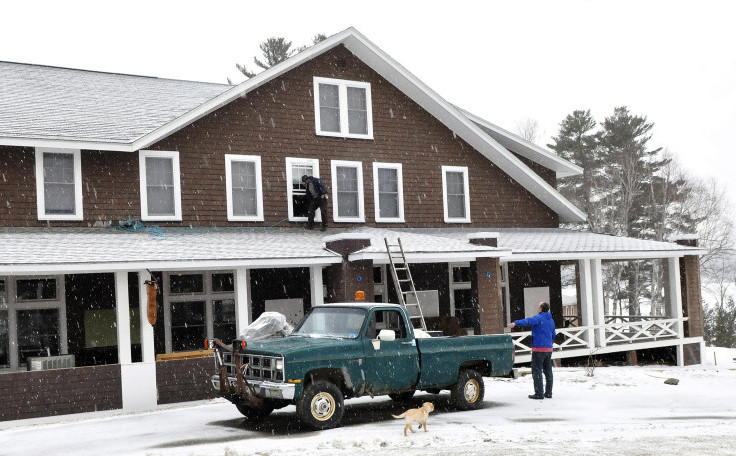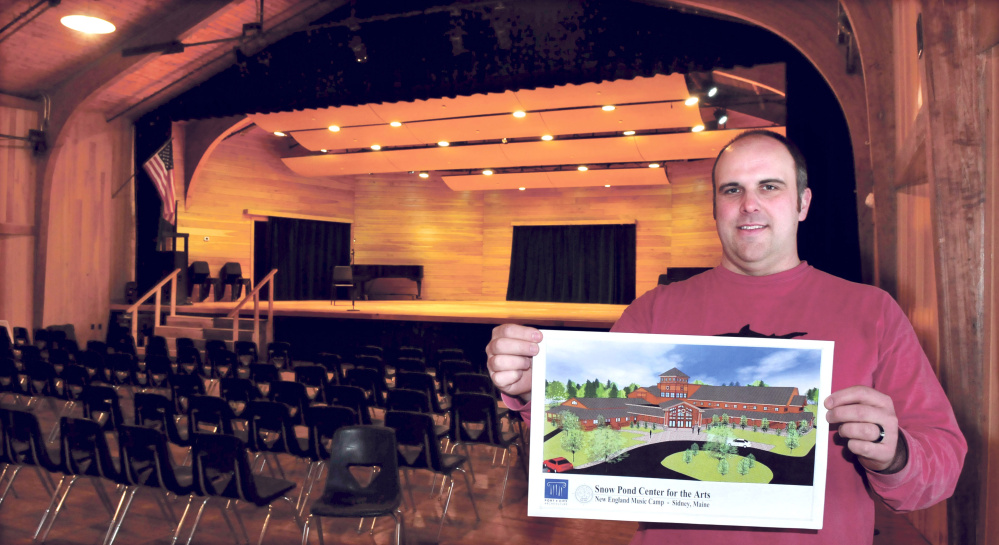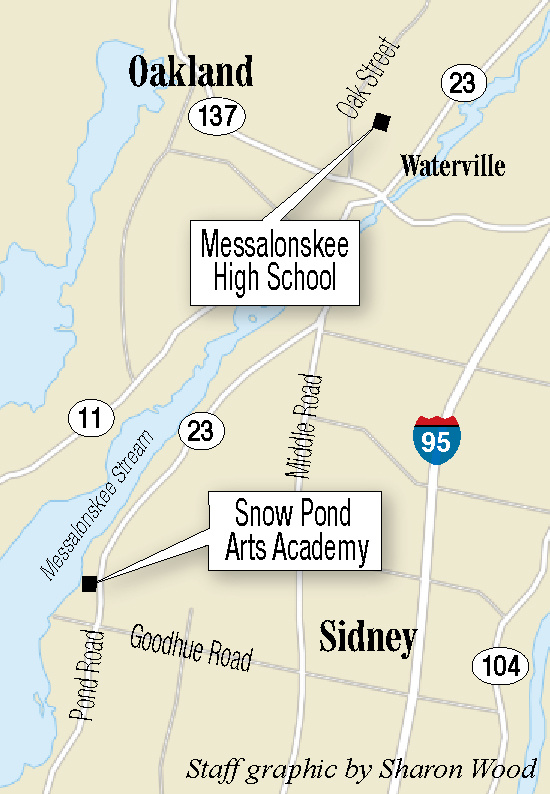Officials from Oakland-based Regional School Unit 18 are negotiating an agreement with the Snow Pond Arts Academy in Sidney to provide busing and food services, part of a broader attempt to develop a cooperative relationship between the school district and new charter school.
David Holinger, dean of students and director of admissions at the academy, said Monday the school wants to avoid the adversarial experience that some Maine public charter schools have had with neighboring school districts.
“We don’t want to be in that situation,” Holinger said. “We really want to do things in a way that will be as mutually beneficial as it can for the district and the charter school.”
Charter schools in Maine have had a rocky relationship with public school districts that share the same territory since the first charter, the Cornville Regional Charter School, opened in 2012.
School officials complained for years about per-pupil payments they had to make to charter schools, including state aid and local taxes for educating students from local districts attending the schools. Skowhegan-based School Administrative District 54, for example, had 107 students last year attending the state’s three charter schools, including in the Cornville school, which started with 60 students and has more than doubled that enrollment.
A law last year changed the arrangement so state funding for charter schools comes directly from the department of education, not local districts.
Considering the history of antagonism between school districts and charters, officials with RSU 18 and Snow Pond wanted to work out something different, according to RSU 18 Superintendent Gary Smith.
“We wanted to be collaborative; it is about developing a relationship,” Smith said. Still, it is hard to know what the impact of the school will be on enrollment in RSU 18 and other districts, he said.
The Maine Charter School Commission approved a contract with Snow Pond last month. The Sidney school, which will serve grades 9 through 12, is affiliated with the Snow Pond Center for the Arts on Messalonskee Lake and shares a campus with the New England Music Camp. It is focused on music and performing arts.
The school expects to enroll between 125 and 135 students in grades 9 and 10 starting next school year and over two years will add grades 11 and 12.
The arts center has been planning a charter school for several years and has been discussing with RSU 18 officials areas of possible collaboration throughout the process. RSU 18 serves the towns of Belgrade, China, Oakland, Rome and Sidney.
Last week, the RSU 18 School Board authorized the administration to negotiate a memorandum of understanding with the academy on a one-year trial basis.
The agreement is expected to outline services the academy will pay the district to provide.
Smith said the district can likely arrange pickups for five or six groups of academy students as long as the school keeps flexible school day start and end times. The district may also be able to provide a satellite food service from one of its kitchens, Smith added.
The academy would pay for the services, a way to bring in additional revenue for the district, Smith said, and technology assistance, like working with student laptops, is also on the table but not likely to come through this year.
“I think in general we want to move slowly and carefully” and not “bite off more than each of us can chew at the start,” he said.
Holinger said the academy would like to use the district’s virtual high school for foreign language and advanced courses and wants to keep a cooperative relationship with RSU 18 and nearby school districts. School officials are concerned a charter might siphon off talented performing arts students, and Snow Pond is trying to make sure students can remain involved in their local high schools if they want, Holinger said.
“We really don’t want to be a talent drain,” he said.
For example, if a Messalonskee High School student comes to Snow Pond but wants to stay involved in the high school band, the academy will make sure that happens, and the school will be open to high school students who want to take extra music instruction.
“We’ve talked a lot about being essentially able to share students,” Holinger said.
Smith said that while he thinks his district and others in the region have good fine arts programs, some families may be looking for a “more focused program” that isn’t offered at the public schools, Smith said.
According to its application, the academy’s initial student population will be made up of students within a 40-mile radius of the school. That area includes students from school systems in the Readfield, Augusta, Waterville, Fairfield, Farmington and Gardiner areas. Although that is the core area, he has been getting inquiries from across the state, Holinger said.
That same wide appeal for a “customized approach” to learning is growing for the Cornville school, according to Principal Travis Works. The school, which has a staff of 18, recently won approval from the state charter school commission to increase its student capacity from 132 to 144. It has a waiting list of about 35.
Works said the Cornville school has agreements with the Maine Academy of Natural Sciences at Good Will-Hinckley in Fairfield, but does not have an agreement with SAD 54 or other public school districts. That soon may change now that the state has addressed the funding formula that put charter schools and public schools at odds.
For example, Works said he could see contracting for a shared part-time nurse and for other such part-time services.
He said students attending the Cornville school come from a wide area, including Belgrade, Farmington, Fairfield, Newport, Harmony and the Skowhegan-Madison area.
“We are more than open to finding opportunities and building relationships with the other local districts,” Works said.
Peter McGuire — 861-9239
Send questions/comments to the editors.





